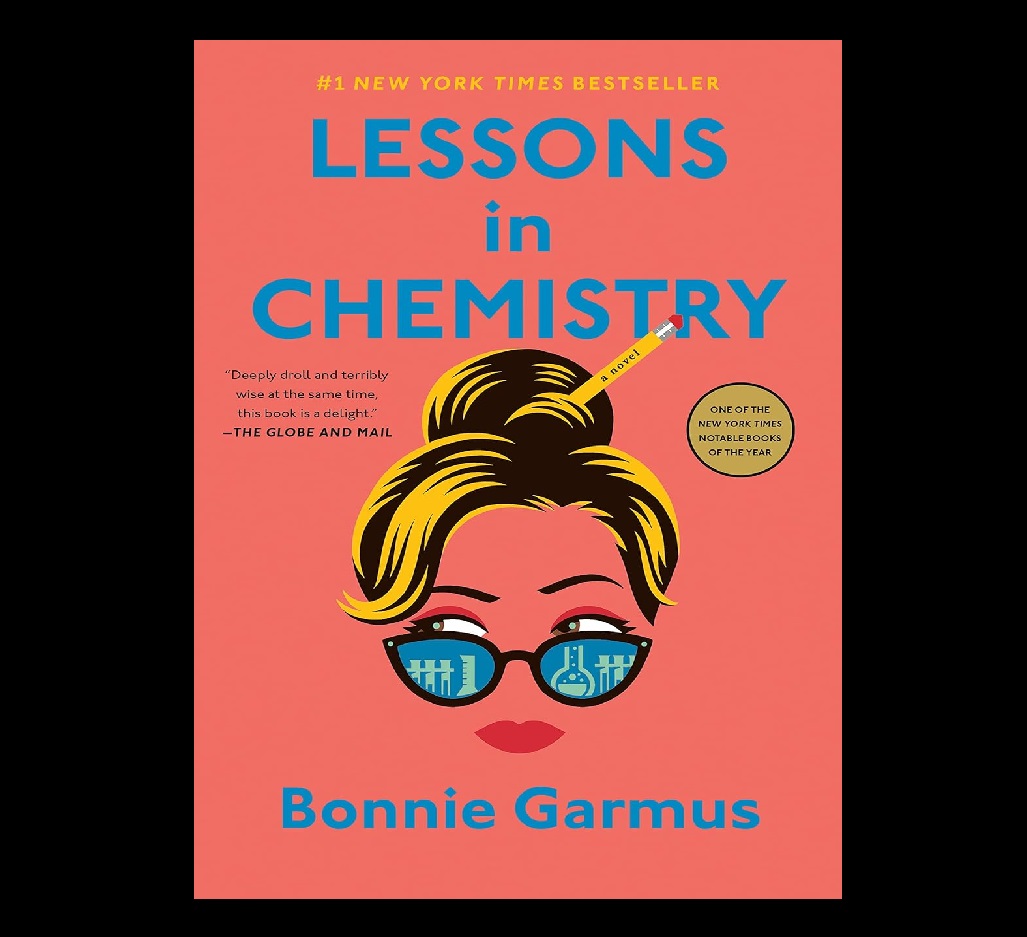“Lessons in Chemistry” by Bonnie Garmus is a captivating and witty novel that takes readers on a journey through the world of science, feminism, and societal expectations in the 1960s. This debut novel offers a unique blend of humor, intelligence, and social commentary that makes it a standout addition to contemporary literature.
Set against the backdrop of the 1960s, the story follows Elizabeth Zott, a brilliant and unconventional chemist whose dreams of a career in science are thwarted by the societal norms of the time. Elizabeth finds herself teaching home economics instead of pursuing her passion for chemistry, a fate she vehemently rejects. Garmus skillfully weaves a narrative that not only explores Elizabeth’s struggles in a male-dominated field but also addresses broader issues of gender roles, expectations, and the quest for self-determination.
One of the novel’s strengths lies in its protagonist, Elizabeth Zott. She is a complex and multidimensional character who defies the traditional roles assigned to women in the 1960s. Elizabeth’s wit, intelligence, and determination make her a compelling and relatable character. As readers follow her journey, they become invested in her quest to break free from societal constraints and pursue her scientific ambitions. Garmus has created a character who is not only a symbol of resilience but also a reflection of the larger societal shifts taking place during that era.
The narrative unfolds with a perfect balance of humor and poignancy. Garmus infuses the story with witty dialogue and clever observations, creating a narrative tone that keeps readers engaged and entertained. The humor serves not only as a source of enjoyment but also as a tool for addressing serious issues. Through Elizabeth’s sarcastic remarks and clever comebacks, Garmus highlights the absurdity of the gender stereotypes and restrictions prevalent in the 1960s workplace.
The novel also explores the theme of mentorship and the importance of supportive relationships. Elizabeth’s interactions with her mentor, Dr. Huntley, add depth to the story. The mentor-mentee dynamic is portrayed with nuance, showcasing the impact of positive relationships on personal and professional growth. The mentorship subplot provides a touching layer to the narrative and emphasizes the significance of having allies in one’s journey.
The historical context of the 1960s is vividly portrayed, offering readers a glimpse into a time when gender roles were rigidly defined, and women faced significant challenges in pursuing careers outside the traditional spheres. Garmus effectively captures the societal attitudes and expectations that shaped the lives of women during this period. The attention to historical detail adds authenticity to the narrative, allowing readers to immerse themselves in the cultural and social landscape of the time.
In addition to its exploration of gender dynamics, “Lessons in Chemistry” delves into the ethical dilemmas faced by scientists. Elizabeth’s commitment to her work and her desire to contribute to scientific advancements raise thought-provoking questions about the responsibilities of researchers and the ethical considerations in scientific pursuits. This adds a layer of depth to the novel, inviting readers to contemplate the intersection of science and morality.
While “Lessons in Chemistry” is undeniably a thought-provoking and entertaining read, some readers might find the pacing to be a bit uneven. The narrative occasionally meanders, and certain subplots could have been more tightly woven into the main story. However, these minor pacing issues do not significantly detract from the overall impact of the novel.
In conclusion, “Lessons in Chemistry” is a remarkable debut that seamlessly blends humor, intelligence, and social commentary. Bonnie Garmus has crafted a compelling narrative with a strong and relatable protagonist, shedding light on the challenges faced by women in the 1960s and exploring timeless themes of ambition, resilience, and the pursuit of one’s true calling. This novel is a must-read for those who appreciate historical fiction with a contemporary resonance and a touch of humor. Garmus’s fresh voice and storytelling prowess make her a writer to watch in the literary landscape. You can buy the book from this link.

